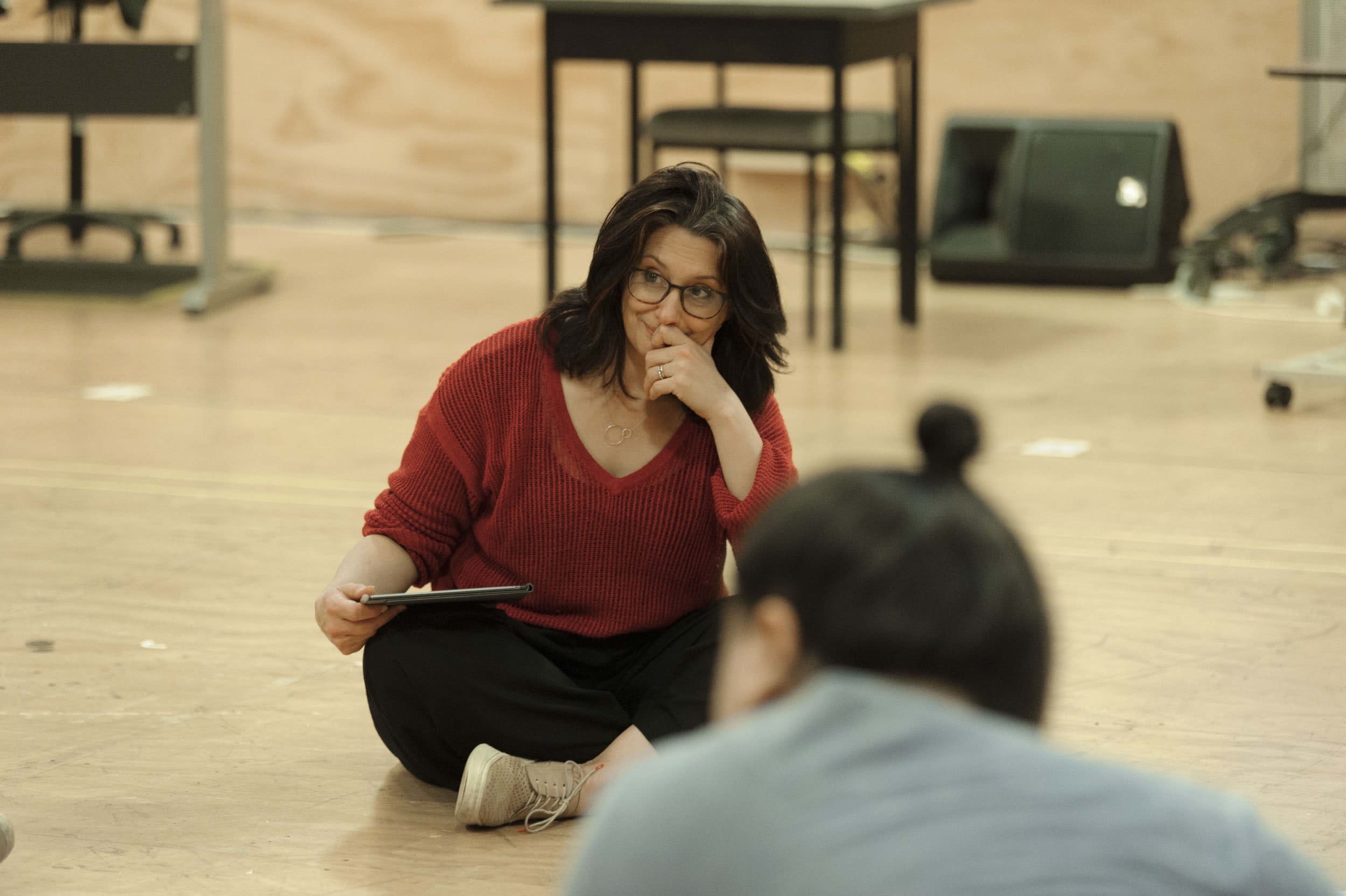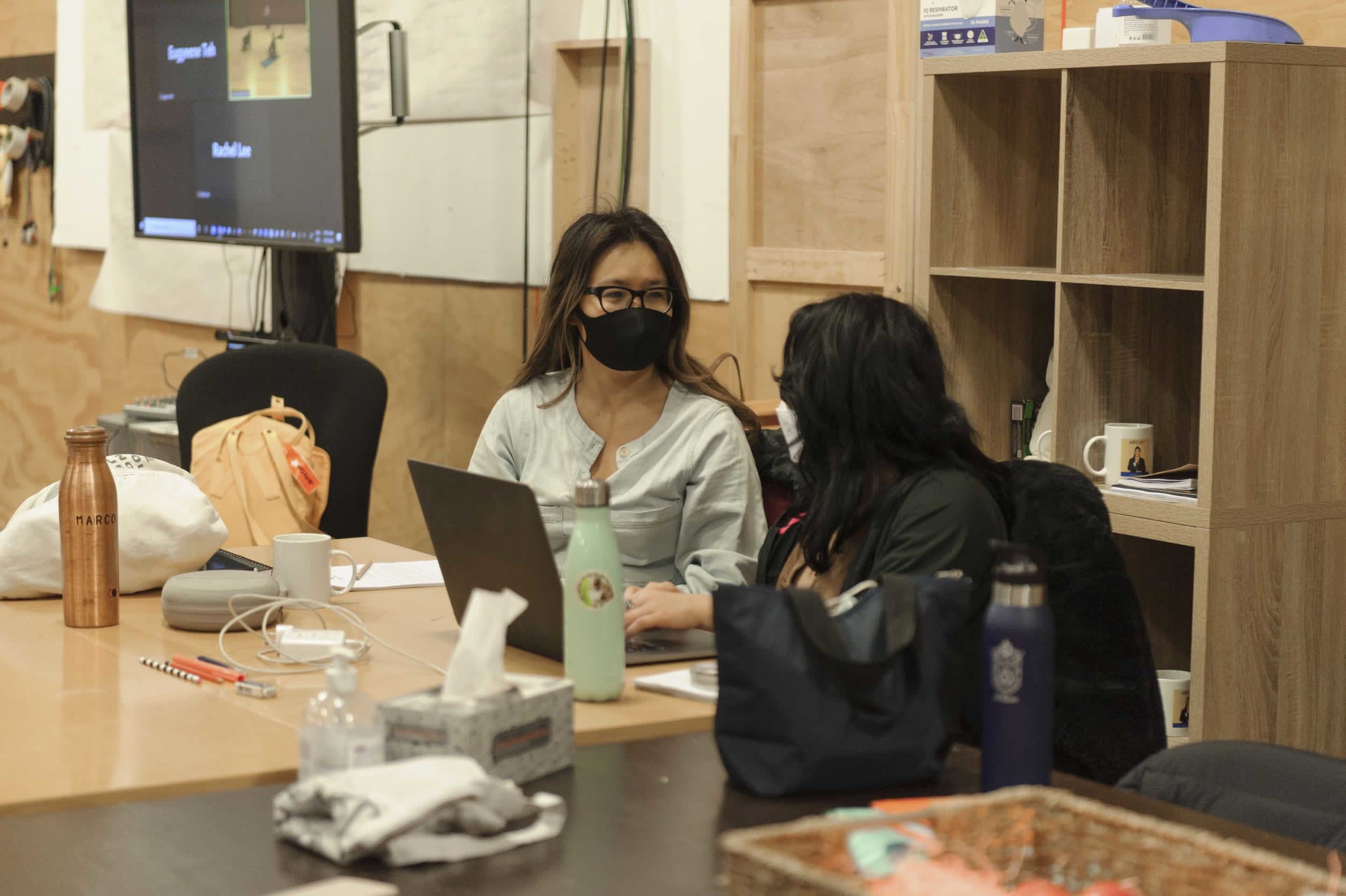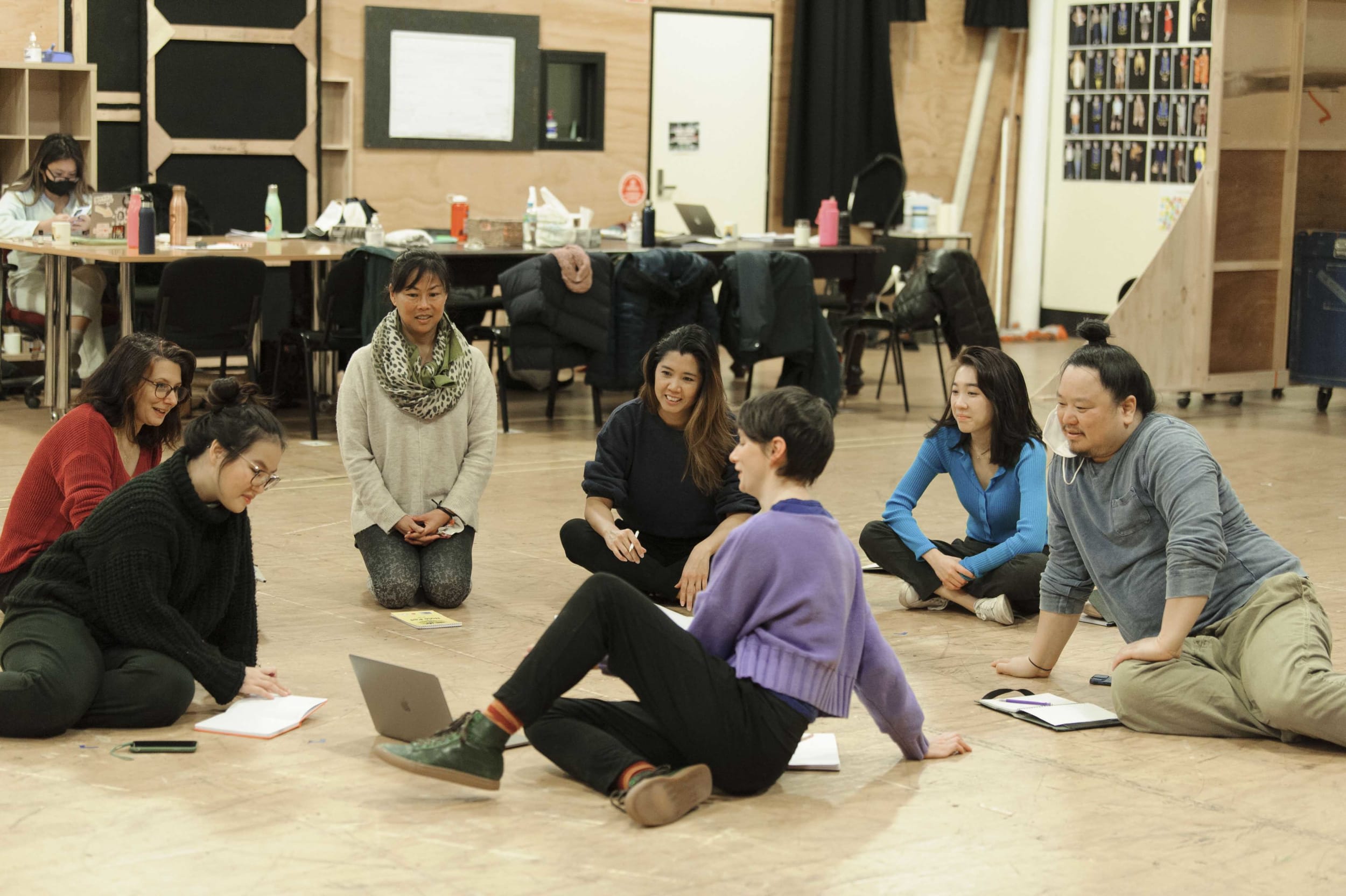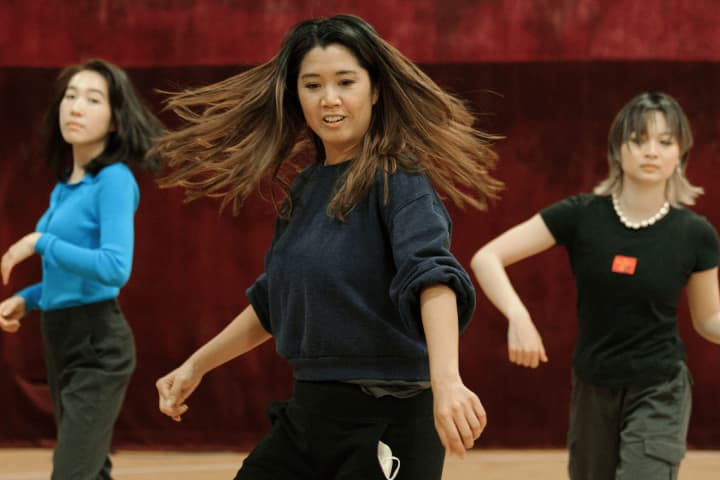Alice Pung’s Laurinda had been sitting on the shelf for a while at Melbourne Theatre Company. While several people had wanted to realise it, for some reason it hadn’t happened. Then, the first Melbourne lockdown hit in 2020 and being new to the company with the energy for something to sink her teeth into, Petra grabbed it with both hands. Diana immediately popped into her mind as a collaborator on this work – there was a sensibility to Diana’s humour and perspective that Petra thought married well with the essence of Alice’s novel. Diana’s work had also featured in Alice’s anthology Growing Up Asian in Australia – and both were both huge fans of Alice’s writing.
We had worked together years previously in an improvisational company and knew our values centred around collaboration, advancing and extending offers, deep listening, the use of metaphor and the drive to find the ‘heart’ of a moment – and the humour – always humour.
So, during that first lockdown, we began developing this work over Zoom (and sometimes phone when internet connection was dodgy) and had a series of workshops (live and virtual) with actors. These workshops were invaluable. Developing the work with the support of so many Asian–Australian actors and creatives has made the work what it is. We could not have articulated the nuance of experience, nor been so bold, without their challenges and generosity. We thank them from the very bottom of our hearts.

Writer & Director Petra Kalive during rehearsals for Laurinda. Photo: Sarah Walker
We could not be more grateful to Alice Pung. Not only for her trust in us to translate her coming-of-age story but also for her generosity in allowing us to adapt the work so it speaks to a whole new audience. While so many reviews of the book categorise Laurinda as ‘charming’, ‘relatable’, ‘important’ and ‘insightful’, what sits underneath their positive statements is a diminishing of the power of what we have uncovered through Alice’s work. She has written an honest, uncomfortable and exposing investigation of the negotiation necessary to walk between cultures. She effortlessly and with humour communicates the internal trauma that is carried intergenerationally and the strength and self-love that is required to simply exist. The magnificence of what Alice has achieved is that she makes this complex and difficult existence relatable and charming, important and insightful, while exposing structural, casual and internalised racism. Perhaps her book was ahead of its time. Although set in a high school, what was clear to us from the beginning was that this was a coming-of-age story that isn’t only experienced at 15 years old. It is a coming-of-age for every age because reconciling the constant and unrelenting negotiation that the dominant (white) culture demands is unceasing.
So, we decided to set Laurinda deliberately in 1997 and 2021 – two periods of intense and visible Asian-hate in Australia. In 1997, Pauline Hanson formed the One Nation Party and her maiden speech railed against Indigenous rights, so-called ‘political correctness’ and ‘reverse-racism’ and called for the halting of migration to Australia because she feared that Australia was being ‘swamped by Asians’. She contributed to shaping the cultural conversation about racism, normalising xenophobia. In 2020, with the arrival of the coronavirus (COVID-19), like many other parts of the world, anti-Asian hate crime soared following news that the virus originated in Wuhan, China. While in the intervening years, conversation about Asian-focused racism was not front and centre, what the coronavirus event demonstrated was how close to the surface the racist sentiment was in Australia. It revealed how much work there is still to do. So, while we were experiencing the real-life events of 2020, it was impossible to interrogate a book set prior to the advent of Google and not engage with the complex conversations about how far we’ve come as a society, how far we have still to go and where the pressure points are on the individual who experiences prejudice, bigotry and bias. It is for this reason that we made the character of Lucy begin the play as a woman in her late 30s, living today, reliving her 15-year-old self through the lens of her adulthood. We took inspiration from the coming-of-age classic Freaky Friday. Lucy is transformed into her own body, 20 years younger. This form allows us to stay true to the comedy and light touch of Alice Pung’s novel, but layers in a dramatic tension that gives the play momentum.

Writer Diana Nguyen with Assistant Director Roshelle Fong during rehearsals for Laurinda. Photo: Sarah Walker
We also deliberately centralised this family home of Vietnamese refugees. We both have lived experience of growing-up as second generation Australians and felt it was important to articulate the specific pressures on a young Vietnamese–Australian woman. It was very important for Diana to see a production on the mainstage articulate the nuance of a refugee family fleeing war for a better life. We would like to thank Chi Nguyen for her Vietnamese translation, which we feel really grounds this family arc of the story and authentically communicates a Vietnamese sensibility.
Returning to the 1990s allowed us to revel in 90s music. We have had the best time reliving our teenage years and injecting the play with references you will only get if you lived it. Relooking at the 1990s through a post-2020 lens offers the opportunity to play, reframe, cringe and laugh at what we were, to better understand where we find ourselves today.

Writer & Director Petra Kalive, Chi Nguyen, Fiona Choi, Ngoc Phan, Movement Director Xanthe Beesley, Jenny Zhou and Roy Phung during rehearsals for Laurinda. Photo: Sarah Walker
What we have endeavoured to do in adapting Laurinda is reveal current ideas about representation, appropriation and deep dive into who gets to tell what stories. We know that the stories we tell have a cultural 'ripple effect'. Alice Pung’s novel has already made significant impact. We hope that by adapting it for the stage, we continue the conversation she started with a new audience. We hope to improve connection, empathy and understanding and, if we’re lucky, generate discussion and debate about where we are headed as a culture.
A big thank you to MTC’s NEXT STAGE Writers' Program. We couldn’t have done it without the support. We need ongoing investment in Australian stories and storytellers so that the cultural identity on our stages is as rich and complex as the Australia we live in.
Laurinda is on stage from 6 August at Southbank Theatre.
Published on 21 July 2022





